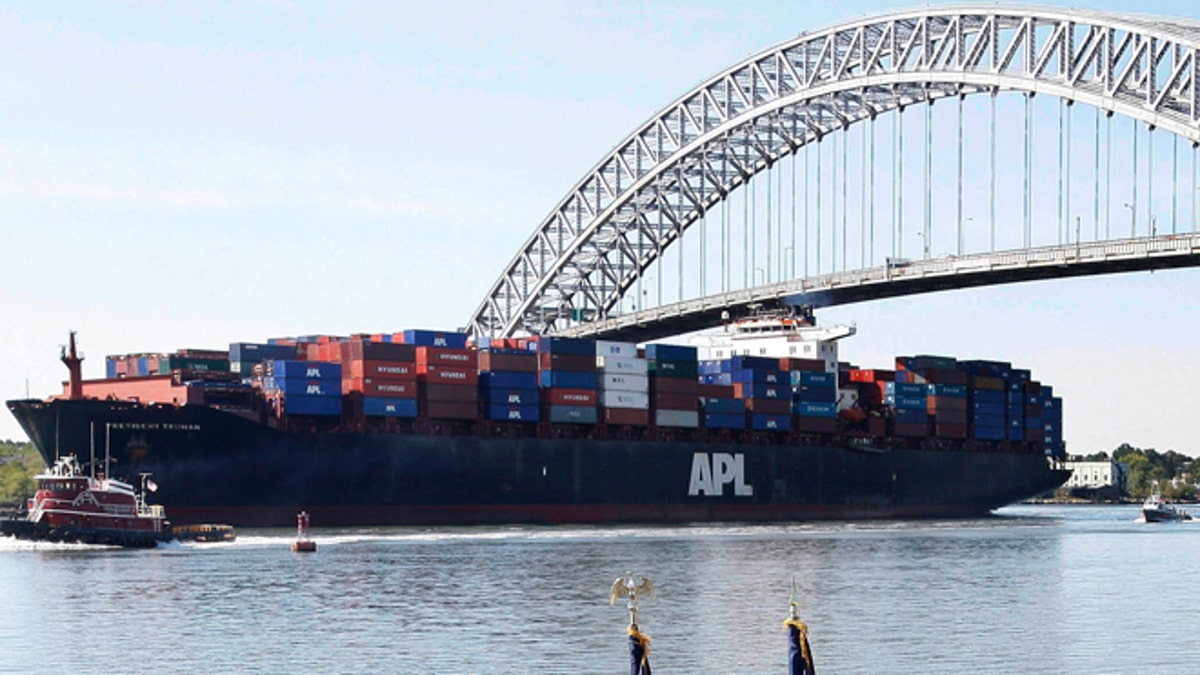
FILE - In this Tuesday, Sept. 21, 2010 file photo, the President Truman, a large cargo ship, passes under the Bayonne Bridge in Bayonne, N.J., as New Jersey Gov. Chris Christie, third left, front, and Lt. Gov. Kim Guadagno, fourth left, front, listen with others, as U.S. Rep. Albio Sires (D-NJ) talks about plans to raise the height of the bridge to accommodate the larger next generation of cargo ships. Residents in N.J. cities and towns are leery of the monster ships that will soon arrive because of a trade project thousands of miles away they believe will harm their air quality, roadways and waterways.  (AP Photo/Mel Evans,file) (A2012)
Interpol is warning world officials that while the newly widened Panama Canal may help open up global trade, it may also make it easier for drug traffickers to ship their products undetected.
"The recent widening of the Panama Canal brings new opportunities for the country, but it also opens up new opportunities for criminals," Interpol Secretary General Jürgen Stock said at the inauguration of the International Police Regional Conference of the Americas in Panama City.
Nearly two years late due to construction delays and labor strife, the $5.25 billion canal expansion project was formally launched last month with the transit of the 158-foot-wide, 984-foot-long, Chinese-owned container ship. It's one of the modern class of mega-vessels that will now be able to use the canal.
Amid the fanfare, global law enforcement is worried that the expansion could help cartels expand their reach even further.
While narco-sub and drug mules tend to make the headlines, experts say that the use of maritime shipping is an essential part of the global narcotics trade.
"Panama is an enormous platform for global trade and, for this reason, it cannot be ruled out that the ships that pass through the canal will be used by criminal bands," Panama Police Chief Omar Pinzon said. "But we are prepared for whatever is coming," he added.
While 90 percent of all world trade involves maritime containers, less than 2 percent of the 500 million containers shipped yearly are inspected, according to the United Nations Office on Drugs and Crime's (UNODC) as quoted by InSight Crime.
This gives drug traffickers as well as smuggling rings that haul contraband and counterfeit goods a major leg up when it comes to evading authorities. It also makes it difficult for law enforcement to track down drugs hidden inside legitimate merchandise.
"The global dependency on maritime trade, combined with not only sophisticated concealment methods employed by narco-traffickers or counterfeiters, but also diverse trafficking routes, make successful interdiction and intervention difficult," states the UNODC.
